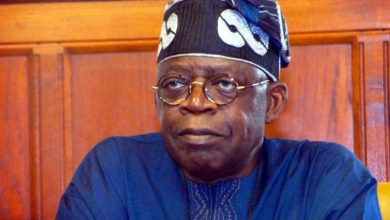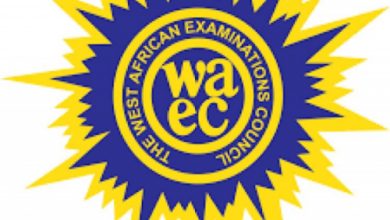Reviewing Amendments to Notary Public Act, 2023

By Muyiwa Ayojimi-LLM (U.K), B.L, ACIS, ACIArb, MNIM
The recent amendments to the Notary Public Act in Nigeria, signed into law by the President in 2023, mark a significant transformation in the legal framework governing notarization within the country.
These changes are poised to modernize the notarial process, incorporating technological advancements, enhancing transparency, and establishing robust measures for accountability. This article provides an in-depth analysis of the legal and practical implications of the amendments, addressing the problems they aim to solve, the benefits they are expected to bring, and a detailed overview of specific provisions and their implications for the profession and the public.
Legal and Practical Implications
The amendments introduce several key changes aimed at improving the efficiency and reliability of notarial services:
- Integration of Technology: A landmark feature of the amendments is the formal integration of audiovisual technology, digital signatures, and seals into the notarization process. This enables electronic notarization, allowing notaries to perform their duties more efficiently and securely, meeting the demands of the digital age.
- Role of the Supreme Court: The Supreme Court is vested with enhanced oversight of notaries, ensuring the maintenance of high standards and integrity within the profession.
- Punitive Measures for Malpractice: The introduction of stringent measures to deter and penalize malpractice aims to bolster the profession’s accountability and trustworthiness.
Addressed Problems
The amendments tackle several critical issues that have plagued the notarial profession in Nigeria, including:
- The lack of confidence in certification systems, difficulty in verifying the authenticity of notaries, unpleasant customer experiences, and prevalent fraud.
- The absence of a legal framework for remote notarization, now addressed by the new provisions.
Benefits
The reforms are expected to yield significant benefits, such as:
- The facilitation of electronic registration and verification of notaries, leading to increased efficiency and reliability.
- Enhanced access to digital tools for notarization and the acceptance of online notarized documents in court.
- The potential for Nigerian-appointed notaries to offer their services globally, reflecting the increased professionalism and modernization of the sector.
Specific Provisions and Their Implications
Key provisions of the amendments include:
- Appointment and Registration of Notaries: The Chief Justice of Nigeria’s role in appointing notaries is emphasized, with a comprehensive registration system established to enhance transparency and accountability.
- Fees and Penalties: A structured framework for notarial fees is set, alongside penalties for non-compliance, ensuring fairness and consistency.
- Revocation of Appointment: The authority of the Chief Justice of Nigeria to revoke a Notary Public’s appointment for misconduct, ensuring public access to accurate and current information.
Technological Advancements and Digital Notarization
The amendments address the integration of technology into notarization processes, highlighting:
- Technological Requirements: Adoption of audio-visual technology for identity verification and mandatory training for notaries on electronic platforms.
Section 9 (1) reflects that in determining the validity of a digitally notarised document, the digital signature and seal of the Notary Public performing the notarisation shall serve as prima facie evidence in any Court in Nigeria that the signature and seal is genuine.
Section 4 of the Act provides that ‘where a document has been notarised digitally, the Notary Public’s digital signature is deemed to be reliable, provided that’:
(a) it is unique to the Notary Public;
(b) it has been previously registered with the Chief Registrar of the Supreme Court;
(c) it is capable of independent verification;
(d) it is retained under the Notary Public’s sole control; and
(e) the digitally notarised document is accompanied by an electronic notarial certificate.
- Electronic Notarizations: Procedures for registering digital signatures and technology used in electronic notarizations, aiming to maintain integrity in the digital age. Two provisions are integral to this reproduced here-
Sections 6 (1) ‘A Notary Public may perform an electronic notarial act for an electronic document by audio-visual communication for a person who is situated in:
(a) in the same State as the Notary Public.
(b) outside the state where a Notary Public is domiciled or commissioned but within Nigeria;
(c) outside Nigeria.
(2) ‘Where a Notary Public performs an electronic notarial act for an individual who falls under subsection (1) (b) and (c) by means of audio-visual communication, the Notary Public shall include a statement in the electronic notarial certificate to indicate that the electronic notarial act was performed by means of audio-visual communication’.
(3) A remote electronic notarisation system used to perform electronic notarisation acts by audio-visual means of communication shall:
(a) provide sufficient audio clarity and video resolution to enable the notary and the individual to see, hear, and speak to each other through live, real-time transmission.
(b) include a means of authentication that reasonably ensures only the proper parties have access to the audio-visual communication.
(c) where notarisation is performed with respect to a tangible or electronic record, the notary must take reasonable steps to confirm that the record is the same record in which the individual made a statement or on which the individual executed a signature;
(d) enable the Notary Public to confirm the identity of the individual through two-factor identification methods, which may include but shall not be limited to, completion of a dynamic knowledge-based authentication assessment, presentation of a government issued identification that contains the photograph and signature of the individual or any other proofing method as may be adopted by the Chief Justice of Nigeria; and
(e) be capable of recording, storing, and accessing electronic recordings and documents on the audio-visual communication.
(4) When performing an electronic notarisation, a Notary Public shall prepare and execute an electronic notarial certificate, which shall be attached to the process that has been notarised.
(5) Copies of digitally notarised documents as well as recordings of audio-visual notary sessions are to be submitted to the Chief Registrar of the Supreme Court for record keeping or to such persons as may be appointed by the Chief Registrar of the Supreme Court.
(6) The sanction for the improper performance of electronic notarial acts is a fine of N50,000.
Section 8 of the Act provides that ‘All electronically notarised documents shall be recognised as valid in all Courts within Nigeria as though they were signed in person’.
- Security Measures: Emphasis on robust authentication methods and secure storage of notarial acts to safeguard the integrity of the process.
Conclusion
The 2023 amendments to the Notary Public Act in Nigeria represent a pivotal step towards modernizing the notarial profession. By addressing long-standing issues and embracing technology, these changes promise to make the notarization process more efficient, secure, and accessible. As a result, the amendments are expected to benefit not only notaries but also the general public and the legal system as a whole, marking a significant advancement in the legal and technological framework of Nigeria. There is a technology platform which every Notary in Nigeria should advisedly, subscribe to in this regard, – ToNote Technologies, a platform that simplifies the way people agree and build trust using a digital documentation and verification infrastructure are in partnership with the Society for Notary Public.





